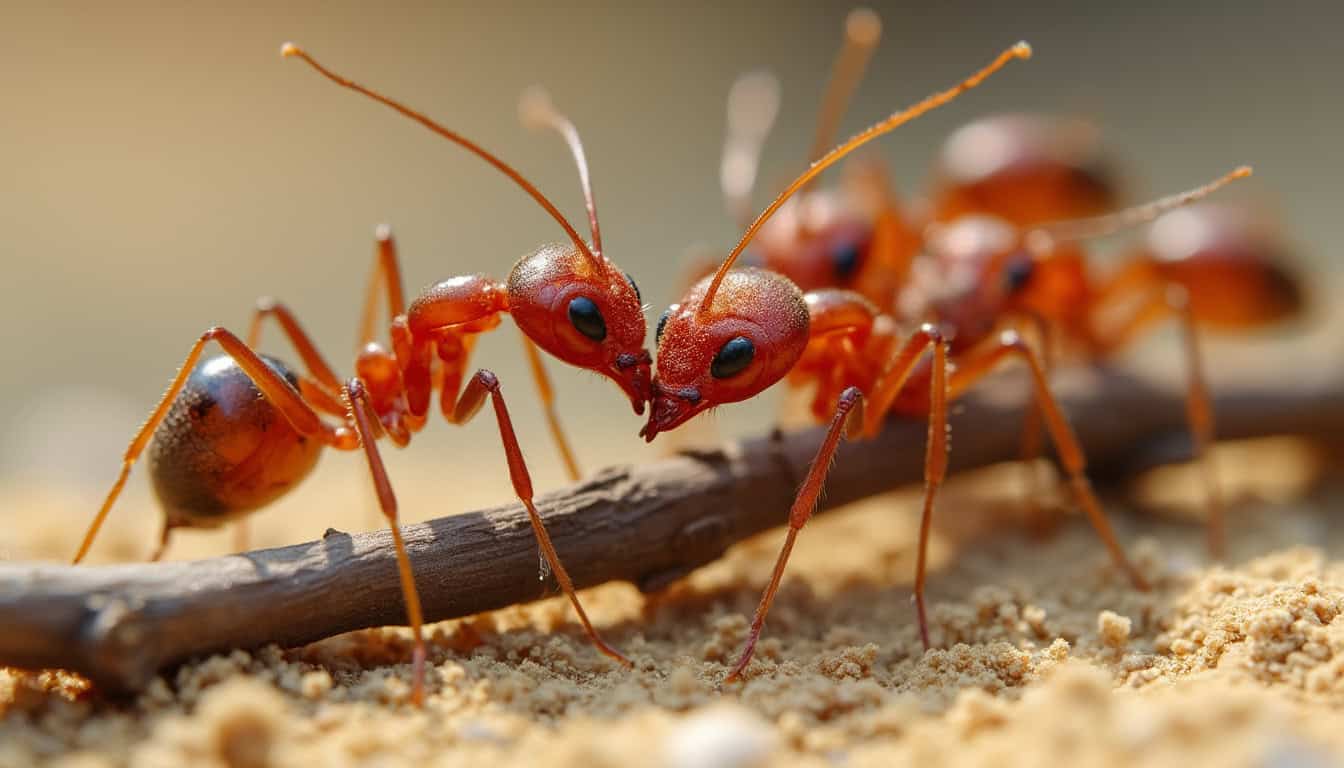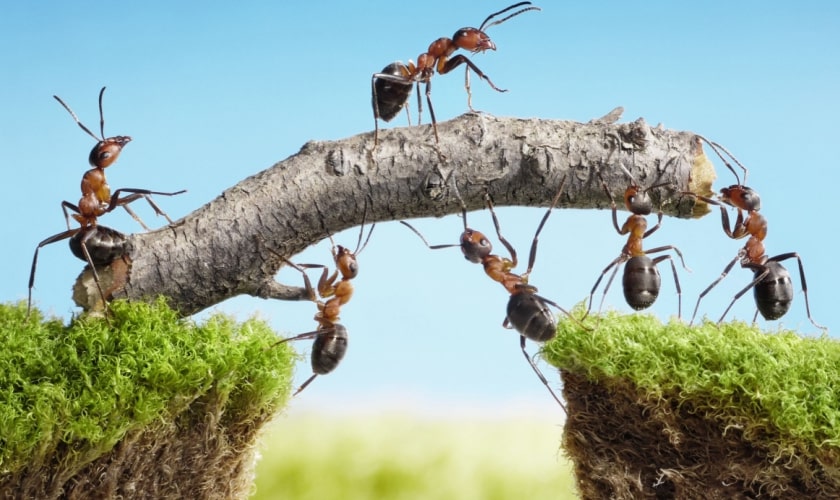Cost Effective Ant Control Solutions: Keep Your Room Ant-Free
Wiki Article
Ecological Influence of Bug Control: Harmonizing Efficiency With Sustainability
The ecological effect of insect control is a vital concern that needs a delicate balance in between attaining effectiveness in making certain and handling bugs sustainability of our ecosystems. From the usage of harmful chemicals that leak right into our dirt and water to the unexpected consequences on non-target types, the repercussions of traditional parasite control methods are significant.Damaging Chemicals in Insect Control
The usage of unsafe chemicals in pest control positions substantial environmental and wellness threats that call for careful consideration and mitigation methods. Pesticides, herbicides, and chemicals are frequently used to remove insects, however their widespread application can lead to unexpected repercussions. These chemicals can contaminate soil, water sources, and the air, impacting not just the targeted pests but likewise valuable bugs, wildlife, and humans.
To address these threats, integrated parasite monitoring (IPM) techniques are being advertised as a more sustainable option. IPM includes a combination of methods such as biological control, habitat adjustment, and the targeted use pesticides as a last resort (ant controlmount holly nc). By embracing an all natural approach to pest control, we can reduce the environmental and health and wellness influences linked with harmful chemicals while efficiently managing pest populations
Influence on Non-Target Species
Thinking about the unintended consequences of bug control techniques, the effect on non-target species is an important element that needs extensive analysis. While parasite control actions aim to target particular pests, various other organisms in the ecosystem may be unintentionally influenced. Non-target species, including valuable insects, birds, mammals, and also plants, can suffer indirect or straight damage from pesticide applications or biological control techniques.Pesticides can have sub-lethal or deadly effects on non-target species. Pesticides designed to combat a particular insect parasite might harm pollinators like bees or natural predators such as ladybugs. Furthermore, chemical deposits can collect in the atmosphere, impacting non-target organisms gradually. Organic control representatives, if not species-specific, can position threats to unintended targets, interrupting the eco-friendly balance.
To alleviate the effect on non-target species, integrated bug management (IPM) approaches that stress an alternative method to pest control are recommended. These approaches focus on making use of eco-friendly methods, decreasing damage to useful microorganisms while properly managing pest populaces. Carrying out comprehensive danger evaluations and keeping track of the results of insect control efforts are essential actions in protecting non-target species and advertising overall community health.
Dirt and Water Contamination
Unplanned ecological consequences of parasite control approaches extend beyond influencing non-target species, with significant implications for dirt and water contamination - ant control. Chemicals, herbicides, and chemical plant foods used in bug control can seep into the soil and contaminate groundwater, presenting a threat to both terrestrial and water communities.Water contamination is an additional essential issue connected with insect control practices. To mitigate dirt and water contamination from parasite control activities, integrated bug administration strategies that prioritize sustainability and reduce chemical inputs are critical.
Air Air Pollution From Pesticide Use
Direct exposure to you can try here airborne chemicals throughout farming applications positions a significant issue for air pollution control procedures. In addition, pesticide drift, where chemicals are carried by the wind to unexpected locations, can lead to the contamination of nearby ecosystems and water bodies.
Strategies for Lasting Insect Control
In the world of farming methods, executing lasting pest control methods is paramount for preserving environmental equilibrium and guarding plant yields. Sustainable pest control highlights using environmentally pleasant methods to take care of parasite populations effectively while lessening damage to non-target organisms and ecosystems. Integrated Pest Monitoring (IPM) is a widely embraced method that combines organic, cultural, physical, and chemical control approaches to attain lasting pest monitoring options.One key technique in sustainable bug control is promoting biodiversity within agroecosystems. By boosting all-natural adversaries of insects, such as predators and parasitoids, farmers can reduce the demand for synthetic pesticides. Crop rotation and diversity are likewise reliable methods to disrupt pest life cycles and develop much less beneficial conditions for parasites to flourish. Additionally, using pest-resistant crop ranges and utilizing strategies like trap cropping can help decrease bug pressure without counting heavily on chemical interventions. Inevitably, by incorporating these sustainable insect control methods, farmers can accomplish an equilibrium between pest monitoring performance and ecological stewardship.
Verdict
Finally, the ecological effect of bug control approaches have to be meticulously thought about to stabilize efficiency with sustainability. Hazardous chemicals utilized in parasite control can result in dirt and water contamination, air pollution, and injury non-target types - termite control services. It is critical to implement sustainable parasite control techniques to decrease these unfavorable impacts on the setting and advertise a healthier community for future generationsBy adopting an all natural strategy to pest control, we can minimize the ecological and wellness influences connected with unsafe chemicals while effectively handling pest populaces.

To mitigate the air pollution created by pesticide usage, it is essential to embrace incorporated parasite monitoring techniques that focus on the use of non-chemical insect control methods, such as plant rotation, natural killers, and resistant crop ranges. Sustainable bug control highlights the usage of eco pleasant approaches to take care of parasite populations successfully while minimizing injury to non-target organisms and ecosystems. Integrated Bug Administration (IPM) is a commonly adopted method that incorporates biological, cultural, physical, and chemical control methods to attain lasting pest monitoring remedies.
Report this wiki page